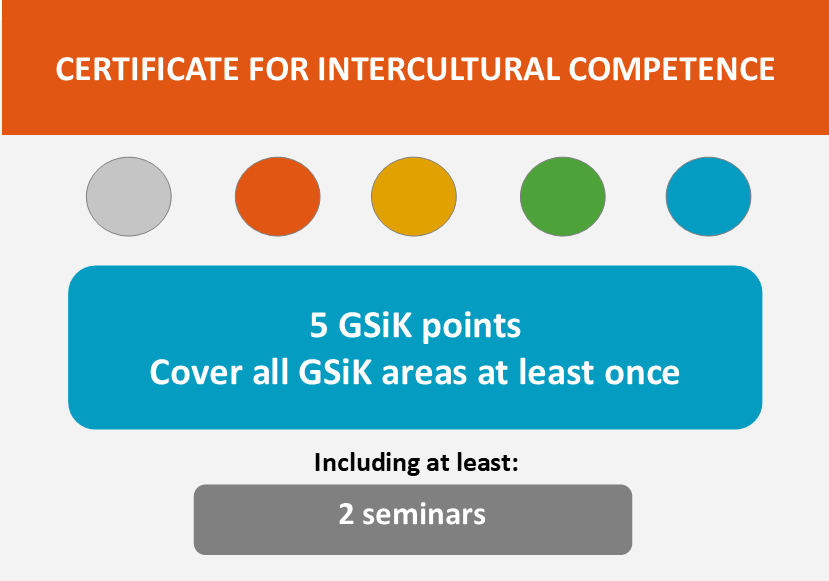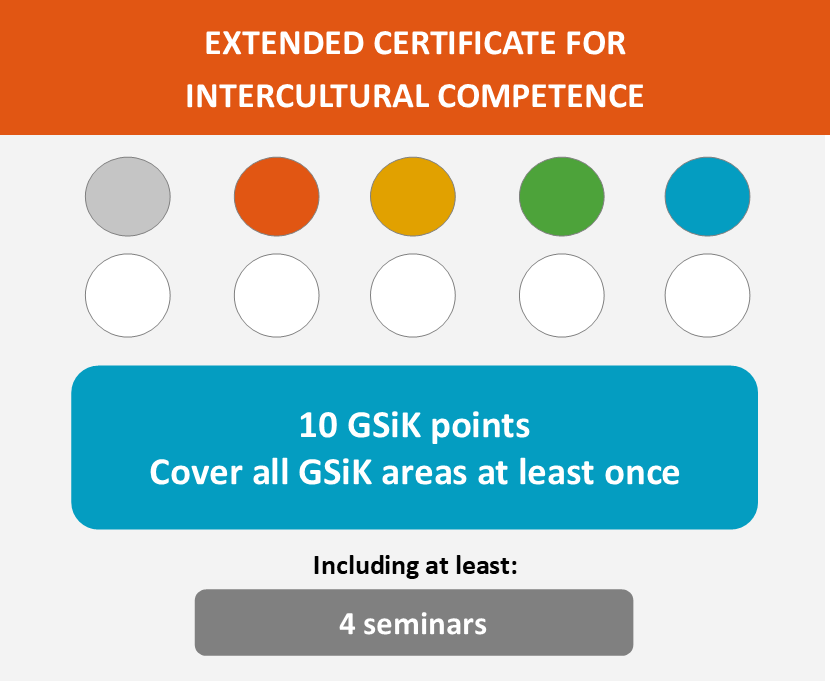Certificates for Intercultural Competence
Intercultural competence is indispensable in everyday life and at work. As a willingness to engage with new things and the individuality of each person again and again, it creates openness and tolerance, and makes us capable of communicating and acting. Topics such as racism and discrimination, flight and migration, cultures and their encounter and gender are part of the debate.
It is best to make a note on your personal overview, for which GSiK areas you want to credit the individual events.
For courses before winter semester 17/18: All courses up to and including summer semester 2017 can be credited for areas A, B, C or D (own choice). For area E, you still have to have attended a non-subject-specific course.
What is special about area E?
Area E is individual. With Area E, we want you to attend at least one course that is not from your subject area. Your individual area E therefore includes all courses that do not correspond to the subject(s) you are studying. In addition, all courses in area E that cannot be assigned to a subject can be credited. You can recognise these by the term "interdisciplinary" in the calendar entry for the event (category: organiser). This is the case, for example, with the additional GSiK semester programme and events organised by cooperation partners outside the faculty structure.





